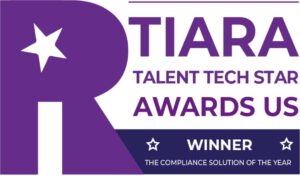Non-compete agreements, which restrict employees from working with competitors or starting a business in the same sector upon leaving the company, are one of the most widely used methods for keeping trade secrets behind closed doors. The U.S. Government Accountability Office estimates that 69% of employers require them for some part-time employees, and 98% require them for managers and executives.
Though non-compete agreements benefit businesses, many federal agencies and lawmakers believe they negatively impact employees’ professional growth and earning potential.
Consequently, the FTC has recently introduced a final rule banning their use. While some have celebrated this move, others vehemently disagree and have sued the FTC to try to stop the ban from going into effect. This has left the fate of the rule in limbo.
How the FTC Rule Will Affect Businesses in the U.S.
The FTC’s final rule makes it illegal for employers to enter into or maintain non-compete agreements with employees. It also requires employers to rescind existing agreements and inform current and past employees that they are no longer valid.
After a review of nearly 30,000 public comments and a 3-2 vote on April 23, 2024, the rule was published in the Federal Register on May 7, 2024. It is set to go into effect on September 4, 2024. However, legal challenges have stacked up, and some of them have real potential to block the ban from moving forward.
Current Lawsuits Concerning the Upcoming FTC Ban
Tax services firm Ryan was the first to sue the FTC, filing a lawsuit alleging that the ban on non-competes would present an undue burden for service businesses. The suit also claims that the FTC does not have the authority to issue rules defining any acts to be unfair competition.
A day later, the U.S. Chamber of Commerce joined with Business Roundtable, the Texas Association of Business, and the Longview Chamber of Commerce to file a lawsuit and request an injunction to stop the rule’s enforcement. The Chamber of Commerce later joined its suit with Ryan and filed a motion for a preliminary injunction on May 10.
That preliminary injunction was granted on July 3, 2024. Presiding Judge Ada Brown blocked the FTC from enforcing its rule, but only in regard to the plaintiffs in this particular case.
On June 28, several days before that injunction was issued, the U.S. Supreme Court moved to overturn the Chevron deference doctrine. This doctrine states that in questions of law arising from the actions of a federal agency, courts must defer to the agency’s interpretation of that law.
The Supreme Court ruling paved the way for Judge Brown to decide that the FTC lacks authority to make rules about the fairness of non-competes and that the lawsuit should go forward on the basis that it is likely to succeed. Judge Brown plans to issue a final ruling in the case by August 30, 2024.
Since the filing of the Chamber of Commerce/Ryan lawsuit, Florida-based real-estate company Properties of the Villages filed a suit complaining that the rule interferes with state laws and unfairly affects existing non-competes. The company asked the court to temporarily block the rule before businesses would have to incur “unrecoverable” costs preparing for compliance and be irreparably impacted by its effects.
ATS Tree Services, a small business in Pennsylvania, also filed a lawsuit asking the court to hold the FTC rule unlawful. However, the suit was dismissed on July 23, 2024, with a federal judge rejecting the plaintiff’s assertion that the FTC doesn’t have the authority to issue a rule banning non-competes.
How HR Leaders Should Respond to the Uncertainty
Although a federal judge has ruled that at least one of these lawsuits is likely to succeed, HR leaders should still be prepared in case it doesn’t. First, all HR professionals should make sure they are following state non-compete laws, especially now that many states have legislation banning or severely restricting non-competes and many others are following suit.
For any HR leader currently using non-compete agreements, it’s critical to do the following:
- Determine which employees have signed active agreements
- Draft notices to have on standby in case the FTC rule prevails
- Check employment agreements and policies and prepare to make changes
As an additional precaution, it’s a good idea for HR leaders to explore other legal options for protecting proprietary information, such as non-disclosure agreements, non-solicitation agreements, and financial incentives.
Staying Prepared Is Key, but Building a Culture of Loyalty Is Best
It’s crucial for businesses to be prepared for compliance. This way, they can avoid possible penalties should these lawsuits work out in the FTC’s favor.
However, it’s also important to build a culture of loyalty and trust in the organization and offer attractive compensation and benefits to reduce turnover. Treating employees well and meeting their needs when possible will likely keep them engaged, productive, and on staff over the long haul.






